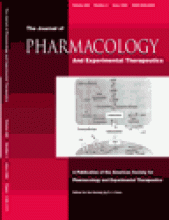Abstract
Cocaine and a number of 3β-phenyltropane cocaine analogs were investigated for their potential to block various pharmacological effects of nicotine in animals. They blocked the antinociceptive effect of nicotine in the tail-flick test after systemic administration in a dose-dependent manner. Similarly, cocaine was also able to block nicotine-induced motor impairment in mice. Furthermore, cocaine blocked nicotine-induced seizures at a lower potency than for antinociception, but failed to block nicotine’s effect on body temperature and drug discrimination. The antagonistic potencies of the 3β-phenyltropane cocaine analogs were not correlated with their affinity for monoamines transporters. Additionally, bupropion, nomifensin, GBR 12909, and nisoxetine, but not methylphenidate and fluoxetine, blocked nicotine-induced antinociception; however, their antagonistic potencies were unrelated to their affinities for the transporters. Taken together, these results suggest that the mechanism of cocaine’s antagonistic activity is not related to its binding and uptake of inhibition on monoamine neurotransporters. The failure of lidocaine and procaine to antagonize nicotine’s effects in the tail-flick assay rules out local anesthetic effects. In addition, cocaine blocked differentially the response of nicotine in the oocyte receptor expression system for the α4β2 and α3β2 subtypes in a dose-dependent manner. Our results suggest that cocaine is a noncompetitive nicotinic antagonist with some selectivity for neuronal nicotinic receptor subtypes. Our studies also demonstrate that 3β-phenyltropane analogs constitute a new class of nicotinic antagonists. Elucidation of the mechanism of action of this new class of antagonists may provide an explanation for the effectiveness of agents such as bupropion for the treatment of smoking cessation.
Footnotes
- Received November 6, 1998.
- Accepted January 28, 1999.
Send reprint requests to: Dr. M. Imad Damaj, Department of Pharmacology and Toxicology, Medical College of Virginia, Virginia Commonwealth University, Box 980613, Richmond, VA 23298-0613. E-mail:mdamaj{at}hsc.vcu.edu
↵1 This work was supported by National Institute on Drug Abuse Grants DA-05274 and DA-05477.
- The American Society for Pharmacology and Experimental Therapeutics
JPET articles become freely available 12 months after publication, and remain freely available for 5 years.Non-open access articles that fall outside this five year window are available only to institutional subscribers and current ASPET members, or through the article purchase feature at the bottom of the page.
|






